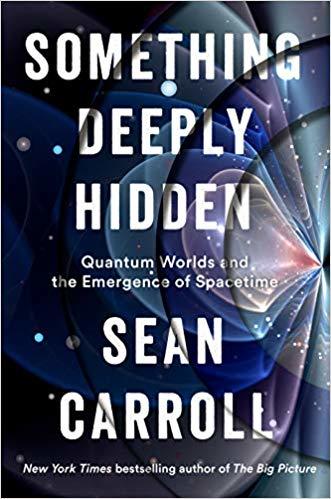Sean Carroll: Where quantum probability comes from

Good topic for Quanta Magazine, though possibly a bit ambitious? But then it’s Sean Carroll, author of Something Deeply Hidden: Quantum Worlds and the Emergence of Spacetime , again (guy gets around), helping us understand his multiverse:
Everett’s brilliant move was simply to say, “And that’s okay” — all we need to do is recognize that each part of the system subsequently evolves separately from all of the others, and therefore qualifies as a separate branch of the wave function, or “world.” The worlds aren’t put in by hand; they were lurking in the quantum formalism all along.
The idea of all those worlds might seem extravagant or distasteful, but those aren’t respectable scientific objections. A more legitimate question is the nature of probability within this approach. In many-worlds, we can know the wave function exactly, and it evolves deterministically. There is nothing unknown or unpredictable. Laplace’s demon could predict the entire future of the universe with perfect confidence. How is probability involved at all?
An answer is provided by the idea of “self-locating,” or “indexical,” uncertainty. Imagine that you are about to measure a quantum system, thus branching the wave function into different worlds (for simplicity, let’s just say there will be two worlds). It doesn’t make sense to ask, “After the measurement, which world will I be on?” There will be two people, one on each branch, both descended from you; neither has a better claim to being “really you” than the other.
Sean Carroll, “Where quantum probability comes from” at Quanta
His universe is deterministic, presumably, because everything happens. End of story. Actually, end of all stories.
See also: See also: Cosmologist Sean Carroll: A radical multiverse is the price we pay for unifying physics. Carroll: “The price we pay for such a powerful and simple unification of quantum dynamics is a large number of separate worlds.” Right. And the price you pay for suicide is that nothing you do in this world afterward matters.
Sean Carroll: Physicists don’t even want to understand quantum mechanics
Carroll wants a multiverse out of any new findings, one suspects. One question many might have is, apart from the lack of a multiverse, how bad is the current situation in physics? What, besides that, is going wrong?
At Nature: The “bizarre logic” of the multiverse is explored in a review. Crease writes as if he would very much like to buy into Carroll’s ideas but still thinks that sanity has something to offer. Possibly, many establishment science figures teeter on that brink. In a review of cosmologist Sean Carroll’s new book, Something Deeply Hidden: Quantum Worlds and the Emergence of Spacetime
Follow UD News at Twitter!
Copyright © 2019 Uncommon Descent . This Feed is for personal non-commercial use only. If you are not reading this material in your news aggregator, the site you are looking at is guilty of copyright infringement UNLESS EXPLICIT PERMISSION OTHERWISE HAS BEEN GIVEN. Please contact legal@uncommondescent.com so we can take legal action immediately.
Plugin by Taragana
Michael J. Behe's Blog
- Michael J. Behe's profile
- 219 followers



